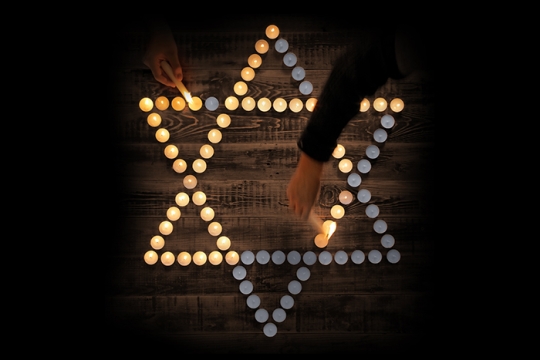“Why don’t they want us? Why is there so much hospitality towards us”; asks Edith, a refugee from the Holocaust living in England. How do we answer that question? When our homes and culture is destroyed where do we go? This question is the theme that ties together the Jewish Experience in England with the rise of the fascist movement in England, a movement which for a brief moment was almost successful in lobbying for Jewish refuges to be expelled from England. - yes England, the country that warmly accepted Jewish refugees and yet denied the refugees a chance to work in meaningful employment, put limits on their movements and questioned their loyalty to their new home while classifying the Israeli independence movement as terrorist activity. The List is a more a novel than historical fiction. Yet the story is rooted in events that did happen in England. The story is told through the eyes and voices of those who immigrated to England as the Nazi tightened their hold on Europe. The List is powerful and emotional novel that makes us wonder about the other survivors. The book is a glimpse into the daily lives of those refugees who escaped yet are still touched by the horror and destruction of their families. We often hear the stories of those who survived the camps but this book takes us into the lives and thoughts of those who escaped the physical danger but live with the mental anguish of having left their families behind and live with not knowing about the survival of their relatives. Try to imagine the guilt and the loneliness of knowing that you are safe and a survivor and not knowing if your family is alive or in need of assistance. For those who escaped to England, the daily activity was to check The List to find out if your relatives perished in Europe or are trying to find you. Every refugee has a list of names and every refugee has the horrific task of crossing off names until everyone is accounted for. The additional horror is that sometimes there is no accounting.
The sub theme in the story is trying to find one’s relatives whose names are not on the list. Did someone in the camps know of them? Did they survive and wander in Europe looking for a home? Did they attempt to immigrate to Israel? Who knows? For the refugees in England, how does one move toward the future when the past has not been resolved? How do you make a new life in a new country when you are living in the past and the present simultaneously? Through the words of the characters created by the Martin Fletcher we can feel and be there with Edith and George , the primary characters, as they try to hold on to the hope that there is a family and to the hope that they will soon create a new family. The question appears in a counter theme, the struggle to bring the displaced Jews to Palestine. In the background is the struggle between the forces of Israeli Statehood with the resistance to a Jewish Homeland on the part of the Western Powers. “Why don’t they want us? Why is there so much hospitality towards us” is also the question asked by our people when trying to enter Israel. Having gone through the Holocaust, once again the world seems to have turned against the Jews. The Book makes us feel the struggle and constant tension between acceptance and resistance. An unasked question is beneath the print. Do we once again passively accept what the world gives us or do we now take an active stance and create the kind of world in which we as Jews want to live? How do we rebuild our lives when the losses have been so severe? Do we choose to live in the past or remember the past and move forward toward a future that we will create through our actions? The List is a story of the triumph ultimately of hope over despair and of strength and resolve over weakness- Never Again! The List is perhaps a metaphor for how we live our lives. We all have lists and these lists sometimes have more control over us than we have over the lists. The List reminds us of what could be, what might be, and what eventually will be. The List contains our memories and also our hopes. As Jews, we are commanded to listen, to hear, and to remember. We must go forward and still remember. We too are survivors.
Read the review of this book in Reform Judaism magazine and see other Significant Jewish Books.
Related Posts

Remembrance and Beyond: International Holocaust Remembrance Day

Combatting Loneliness, Poverty, and Trauma in the Lives of Holocaust Survivors

